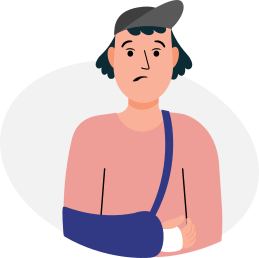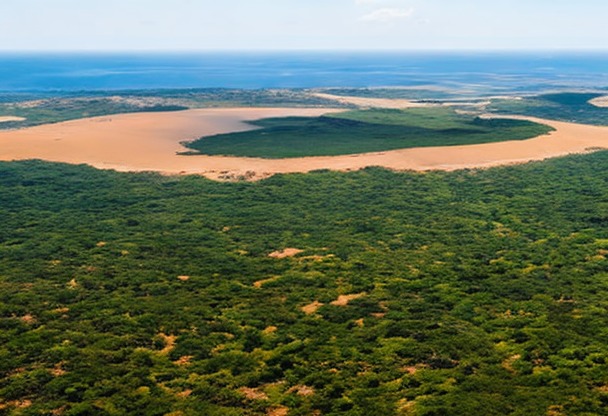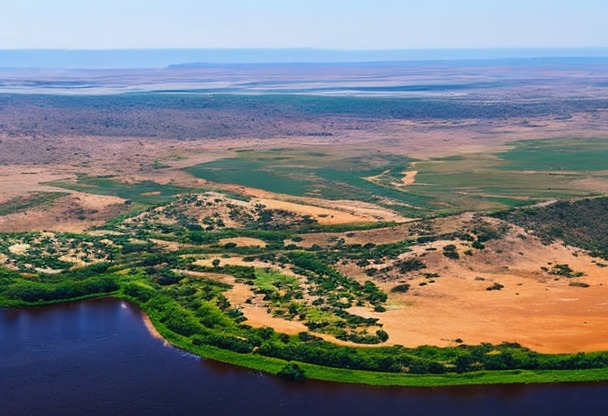Best time to travel to Angola
Choosing the right period for your trip to Angola can make all the difference. It's important to consider climatic elements, seasonal events and peak tourist periods to maximize your travel experience.

Location
Climate
Understanding Angola's climate
The climate in Angola varies from region to region, but can generally be described as humid tropical in the north and dry subtropical in the south. The best time to visit Angola depends on the region you wish to explore and the activities you hope to enjoy during your stay.Dry season (May to October)
The dry season in Angola generally runs from May to October. This is considered the best time to visit the country, as temperatures are pleasant and rainfall is low. The advantages of traveling during the dry season include:- Less rain Rainfall is less frequent and less intense, making travel more comfortable and reducing the risk of flooding or landslides.
- Pleasant temperatures The average temperature during this period is between 20 and 28 degrees Celsius, ideal for exploring the sights and enjoying outdoor activities.
- Best conditions for safaris The dry season is also the best time to observe wildlife in Angola, as animals gather around the remaining waterholes, making them easier to spot.
Rainy season (November to April)
The rainy season in Angola generally extends from November to April. Although this is not considered the best time to visit the country, it does offer certain advantages:- Green landscapes Rainfall transforms the landscape into a lush green setting, offering breathtaking panoramas.
- Seasonal fruit The rainy season coincides with the harvest of many delicious fruits, such as mangoes and pineapples.
- Fewer tourists If you prefer to travel off the beaten track and avoid the crowds, the rainy season can be an interesting option for exploring Angola without the pressure of mass tourism.
Public holidays in Angola
Public holidays in Angola are a time for cultural celebrations and events. Here are some of the country's most important public holidays:- Independence Day (November 11): Celebration of Angola's independence from Portugal in 1975.
- National Heroes Day (February 4): Commemoration of the struggle for independence and tribute to national heroes.
- Liberation Day (April 25): Celebration of the end of Portuguese colonization and the start of the struggle for independence.
- Christmas (December 25): Christian holiday celebrating the birth of Jesus Christ, marked by masses, family meals and festivities.
Major cultural events in Angola
Angola is home to a rich culture, with a variety of events and festivals celebrating its unique heritage. Major cultural events not to be missed during your visit to Angola include:- Festival Internacional de Cinema de Luanda (FIC) : This annual film festival, usually held in September, showcases local and international films and pays tribute to renowned directors and actors.
- Festival de Dança Contemporânea : This contemporary dance festival, held every year in October, brings together Angolan and international dancers and choreographers for performances and workshops.
- Festa da Nossa Senhora do Monte Lubango: This annual religious festival, celebrated on August 15, is marked by a procession through the streets of Lubango, with music, song and prayer.
- Luanda Carnival Luanda Carnival is one of Angola's biggest cultural events, with colorful parades, traditional costumes, music and dance. It usually takes place in February or March, during the Mardi Gras festivities.
Insurance

Your credit card does not cover you in all situations, that is whyIt is essential to take out insurance before you leave to avoid any unpleasant surprises. If you need to see a doctor or be hospitalized, in some countries, medical costs are very high and you will then find yourself having to pay several thousand euros.
Our partner Chapka Insurance proposes the contract CAP ASSISTANCE 24/24 with many essential guarantees.


Flights

Your flight has been cancelled or delayed ?
You may be eligible for a compensation of up to €600 ! For this, lawyers are responsible for handling your claim with the airline and are only paid when the reimbursement is effective.
In conclusion, no financial risk for you, only advantages!
Statistics on immigration to Angola
Angola is a country that has experienced significant economic growth in recent years, thanks in part to its oil resources. This growth has led to an influx of migrants from other African countries and other continents.International migrants in Angola
According to data collected by the United Nations (UN), the number of international migrants in Angola stood at around 169,000 in 2019, or 0.5 % of the total Angolan population. Most of these migrants come from neighboring countries such as Democratic Republic of Congothe Namibia and the Zimbabwe.Reasons for migration to Angola
The reasons for migration to Angola are manifold and include :- Job search : Angola's oil industry is a major driver of the country's economic growth and attracts many foreign workers.
- Armed conflicts : Some migrants flee armed conflicts in their home countries and find refuge in Angola.
- Search for better living conditions: Angola offers economic development opportunities to those seeking a better quality of life for themselves and their families.
Most popular visas in Angola
To enter Angola, most foreigners need to obtain a visa adapted to their situation. Here are the most popular visa categories:Tourist Visa
The tourist visa is intended for people wishing to travel to Angola on vacation or to visit friends and family. The maximum stay allowed with this visa is usually 30 days.Work visa
This type of visa is granted to people who have found a job in Angola and have obtained a work permit from the local authorities. The period of validity of this visa depends on the duration of the work contract, and may be renewed.Business Visa
Foreign entrepreneurs and businessmen wishing to carry out commercial activities in Angola can apply for a business visa. This visa allows transactions to be carried out or business meetings to be attended, but does not give the right to work in Angola.Student visa
Foreign students wishing to study in Angola must obtain a student visa. This visa is generally granted for a period of 6 months to 1 year, and can be renewed if studies continue.International tourism figures for Angola
Angola's tourism sector is still relatively underdeveloped compared with other African destinations. Nevertheless, the number of international tourists visiting the country is gradually increasing every year.International tourist arrivals
According to data from the World Tourism Organization (UNWTO), the number of international tourist arrivals in Angola totaled around 218,000 in 2018, an increase of 4 % on the previous year.International tourism revenues
Revenues generated by international tourism in Angola have also risen in recent years. According to the UNWTO, they rose from US$322 million in 2017 to almost US$350 million in 2018, an increase of 8.7 %.Visitor origin
The majority of international visitors to Angola come from Africa, mainly from neighboring countries. The main nationalities represented include :- The Congolese,
- Namibians,
- Zimbabweans,
- The South Africans.










